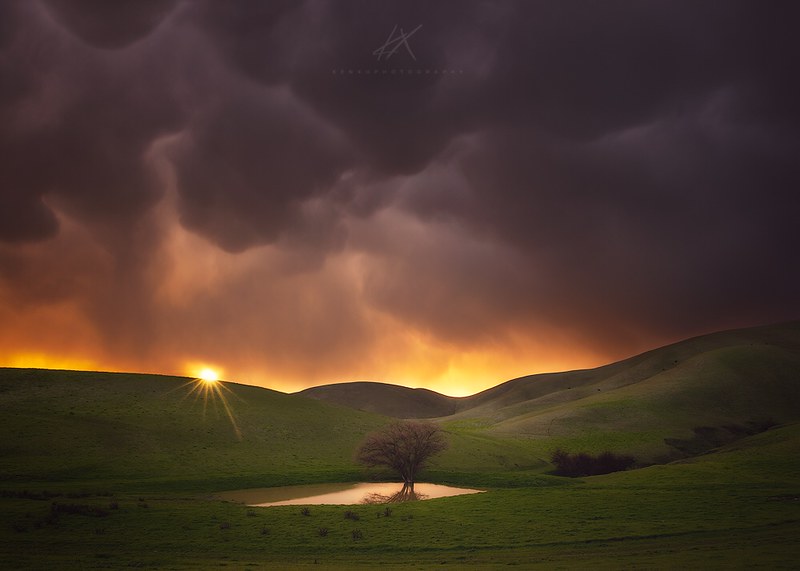You Were Strangers
The Ethical Significance of Passover
Rabbi Bradley Shavit Artson
Each one of us was a stranger in Mitzrayim, and each one of us must take the initiative to ensure that no stranger ever feels unwelcome in any Jewish gathering. The first step, then, is to realize that if you don't look for strangers, no one else will either. If you don't get up to say, "hello, may I sit with you?" no one else will either. It all depends on you.
-- Rabbi Bradley Artson
|
Like all Jewish festivals, Passover has its roots in Jewish history, in our connection to creation and in the rich spiritual and moral values of Judaism.
Agriculturally, Pesach (Passover) is a festival of the spring, a time of rebirth and of hope. In the spring, plants re-emerge in the full bloom of their beauty. Aware of our connection to the earth, and the importance of maintaining the balance of all living things is one key lesson of the season and of Pesach. Historically, Pesach recalls that our ancestors were slaves in Mitzrayim. Pesach recalls our liberation from the abusive oppression of the Pharaoh and his court. Under the leadership of Moses, Miriam and Aaron, we learned that a free people must be willing to fight for its freedom, that no one is truly free until everybody is. Drawing on the memory of having been slaves, we Jews have a special obligation to empathize with any group who are outcasts, oppressed or dehumanized. We, who experienced suffering, must always train ourselves to identify with those who suffer. Finally, there is a religious message in Pesach as well. Pesach teaches us that
Additionally, Pesach helps us to distinguish between two very different types of freedom. One notion of freedom -- popular in many current venues -- is freedom from. Such a view maintains that freedom means an absence of coercion; we are free not to do anything, or support anyone, unless we want to. That notion of freedom, however valuable as a beginning, is incomplete. It is not the full freedom of Pesach. Pesach beckons us to a freedom to. Because we were liberated from Mitzrayim, from idolatry and from slavery, we are now free to live as Jews and to build a sacred community. Our ancestors were willing to die for their faith; are we willing to live for ours? Pesach beckons us to show that we accept the challenge and the privilege of living and growing as Jews. Part of our embodiment of those values is through the mitzvot, the sacred commandments. And part of that commitment impels us to speak out for Jewish values, Jewish community and human freedom and dignity around the world. A mature freedom is not an escape from responsibilities. It is the acceptance of responsibilities which work l'takken olam b'malkhut Shaddai, to repair the world under the sovereignty of God. The promise of Pesach leads us to its attainment at Sinai. Liberation is the first step toward Torah -- with its call to all of us to live as fully, as compassionately, and as meaningfully as we possibly can. Much of the wisdom and laws of our tradition can only be understood in the light of that passion for justice and that identification with the downtrodden, the lonely and the oppressed. In fact, one of the most frequently repeated explanations for a variety of laws in the Torah is "...for you were strangers in Mitzrayim, and the Holy One liberated you with an outstretched hand." Because we were strangers in Mitzrayim, we know what it is like to feel unwanted or unnoticed. We know the pain of silent rejection and the courage it takes to enter a room where you know no one. Each of us, the Haggadah reminds us, must feel as though we personally were liberated from Mitzrayim, a narrow place. So, too, we must each reach deep down to painful moments of exclusion or invisibility to remember just how the stranger might feel in our midst. This is no theoretical issue. Each Shabbat, and at every communal event, strangers summon up their courage to engage the Jewish community. Maybe they need to say Kaddish for a loved one, or perhaps they just want to learn or join in a social action initiative. Perhaps they don't feel they fit the mold (a vision of some perfect family perhaps). Whatever the reason, we always have strangers in our midst. Who is supposed to greet those strangers? Whose job is it to make sure they have the right handouts, that they are not sitting alone, that someone is there to talk with them and to introduce them to people already established there? Each one of us was a stranger in Mitzrayim, and each one of us must take the initiative to ensure that no stranger ever feels unwelcome in any Jewish gathering. The first step, then, is to realize that if you don't look for strangers, no one else will either. If you don't get up to say, "hello, may I sit with you?" no one else will either. It all depends on you. And in summoning the energy and the caring to approach a stranger and to make them feel welcome, know that you are doing more than just making a new friend. Know that you are an ambassador for the Jewish people, and that their estimation of our community will be molded by your deed. Know, beyond that, that you serve as a Shaliach, a messenger of the Holy Blessing One, the God who took a group of strangers into freedom -- because someone had to do it. -- originally posted in Huffington Post |












